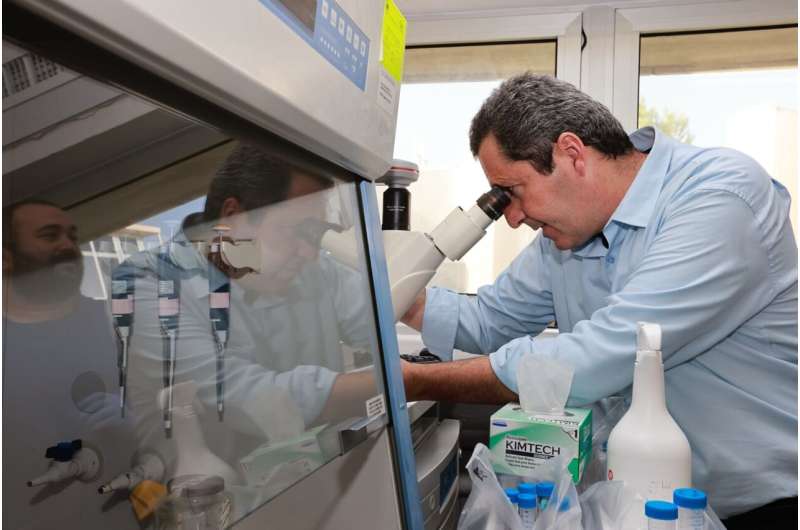
August 21, 2024 by Hebrew University of Jerusalem
Collected at: https://phys.org/news/2024-08-cultivated-meat.html
A new study demonstrates the first cost-effective method for producing cultivated meat. The study shows that continuous manufacturing addresses the key challenges of scalability and cost, potentially making cultivated meat accessible to everyday consumers and contributing to a more sustainable and ethical food system.
In an extraordinary stride for cellular agriculture, Professor Yaakov Nahmias, founder of Believer Meats, and a multidisciplinary team at the Hebrew University of Jerusalem and the cultivated meat industry unveiled a pioneering continuous manufacturing process for cultivated meat. This innovation tackles the industry’s critical challenges of scalability and cost-effectiveness.
The study, “Continuous Manufacturing of Cultivated Meat: Empirical Economic Analysis,” published in Nature Food, demonstrates the use of tangential flow filtration (TFF) for the continuous manufacturing of cultivated meat. The new bioreactor assembly permits biomass expansion to 130 billion cells per liter, achieving yields of 43% weight per volume. The process was carried out continuously over 20 days, enabling daily biomass harvests.
Additionally, the research introduces an animal component-free culture medium, priced at just $0.63 per liter, which supports the long-term, high-density culture of chicken cells. In other words, this continuous manufacturing method could significantly reduce the cost and complexity of cultivated meat production, potentially bringing it closer to everyday consumers.

“We were inspired by how Ford’s automated assembly line revolutionized the car industry 110 years ago,” stated Prof. Nahmias. “Our findings show that continuous manufacturing enables cultivated meat production at a fraction of current costs, without resorting to genetic modification or mega-factories. This technology brings us closer to making cultivated meat a viable and sustainable alternative to traditional animal farming.”
Bruce Friedrich, President of The Good Food Institute, expressed his support, stating, “GFI applauds the spirit of openness that continues to characterize cultivated meat researchers like Dr. Nahmias and his colleagues, who understand that showing the scientific potential of cultivated meat will benefit all scientists working in the field.”
This research represents a significant advance in the economic feasibility of cultivated meat, addressing previous concerns about high costs and low yields. Utilizing this empirical data, the team conducted a techno-economic analysis of a hypothetical 50,000-liter production facility. The analysis indicates that the cost of production of cultivated chicken could theoretically be reduced to $6.20 per pound, aligning with the price of organic chicken.
Dr. Elliot Swartz, Principal Scientist at Cultivated Meat, The Good Food Institute emphasized the significance of the study’s findings, stating “This important study provides numerous data points that demonstrate the economic feasibility of cultivated meat. The study confirms early theoretical calculations that serum-free media can be produced at costs well below $1/L without forfeiting productivity, which is a key factor for cultivated meat achieving cost-competitiveness.”
Dr. Swartz added, “Empirical data is the bedrock for any cost model of scaled cultivated meat production, and this study is the first to provide real-world empirical evidence for key factors that influence the cost of production, such as media cost, metabolic efficiency, and achievable yields in a scalable bioprocess design.”
More information: Continuous Manufacturing of Cultivated Meat: Empirical Economic Analysis, Nature Food (2024). DOI: 10.1038/s43016-024-01022-w
Journal information: Nature Food

Leave a Reply